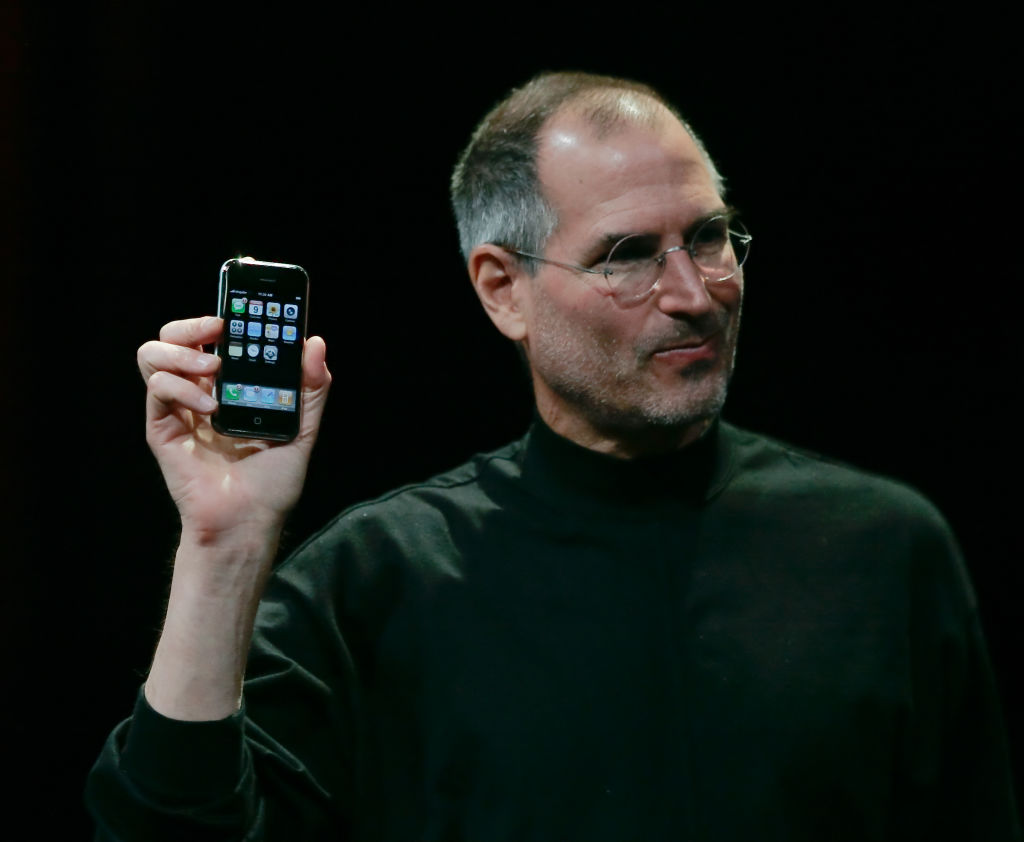
Get the latest financial news, insights and expert analysis from our award-winning MoneyWeek team, to help you understand what really matters when it comes to your finances.
You are now subscribed
Your newsletter sign-up was successful
Want to add more newsletters?
Smartphones are now so ubiquitous that it's strange to think it's just been a few since the first one made its appearance.
But it is. The world's first real' smartphone, the Apple iPhone, went on sale on this day all the way back in 2007. There had been phones that did things smartphones do the Nokia Communicator, for example, which could send emails and browse the web; and a line of PDAs, (personal digital assistants, a sort of electronic Filofax) released by Palm and the like. But none had the desirability, usability and sheer impact of Apple's iPhone.
The iPhone, said Steve Jobs, was "a revolutionary and magical product" that was "literally five years ahead of any other mobile phone".
Try 6 free issues of MoneyWeek today
Get unparalleled financial insight, analysis and expert opinion you can profit from.

Sign up to Money Morning
Don't miss the latest investment and personal finances news, market analysis, plus money-saving tips with our free twice-daily newsletter
Don't miss the latest investment and personal finances news, market analysis, plus money-saving tips with our free twice-daily newsletter
In a phenomenon that has become commonplace at Apple launches, people queued for days to get their hands on one of the devices. British consumers, however, had to wait until 9 November before it was launched here. Nevertheless, hardy British customers camped out in the late autumn rain.
The iPhone cost just $150 million to develop, but sales have been phenomenal. Five million of the original iPhones were sold before the iPhone 3G was launched a year and a half later.
And the success has continued. In 2024, Apple generated $390.8 billion in revenue, and more than half of it (51%) came from iPhone sales.
The company now claims a 17% market share of the global smartphone market, making it one of the biggest smartphone brands in the world.
On the day the iPhone was launched, one Apple share would have cost you $17.43. Today, you're looking at over $200.
Get the latest financial news, insights and expert analysis from our award-winning MoneyWeek team, to help you understand what really matters when it comes to your finances.

-
 The enshittification of the internet and what it means for us
The enshittification of the internet and what it means for usWhy do transformative digital technologies start out as useful tools but then gradually get worse and worse? There is a reason for it – but is there a way out?
-
 The Brussels effect – how the EU is raising standards around the world
The Brussels effect – how the EU is raising standards around the worldBriefings EU standards and consumer protection regulations have a habit of being enforced globally. Why is that? And is it such a bad thing?
-
 Quiz of the week 30 January – 5 February
Quiz of the week 30 January – 5 FebruaryFeatures Tesla chief Elon Musk tweeted messages in support of an obscure cryptocurrency this week, sending its price soaring. But which one? And what else happened this week? Test your recollection of the events of the last seven days with MoneyWeek's quiz of the week.
-
 Quiz of the week 16-22 January
Quiz of the week 16-22 JanuaryFeatures A Japanese car-maker announced plans to continue its UK operation, safeguarding 6,000 British jobs. But which one? And what else happened this week? Test your recollection of the events of the last seven days with MoneyWeek's quiz of the week.
-
 Margrethe Vestager: a symbol of all that’s wrong with the EU
Margrethe Vestager: a symbol of all that’s wrong with the EUOpinion Margrethe Vestager, the EU’s competition commissioner, wields enormous power over industry, and abuses it, says Matthew Lynn.
-
 The trouble with co-ops
The trouble with co-opsOpinion Co-ops have been hailed as a model for a fairer capitalism. But they remain unpopular for a reason, says Matthew Lynn.


